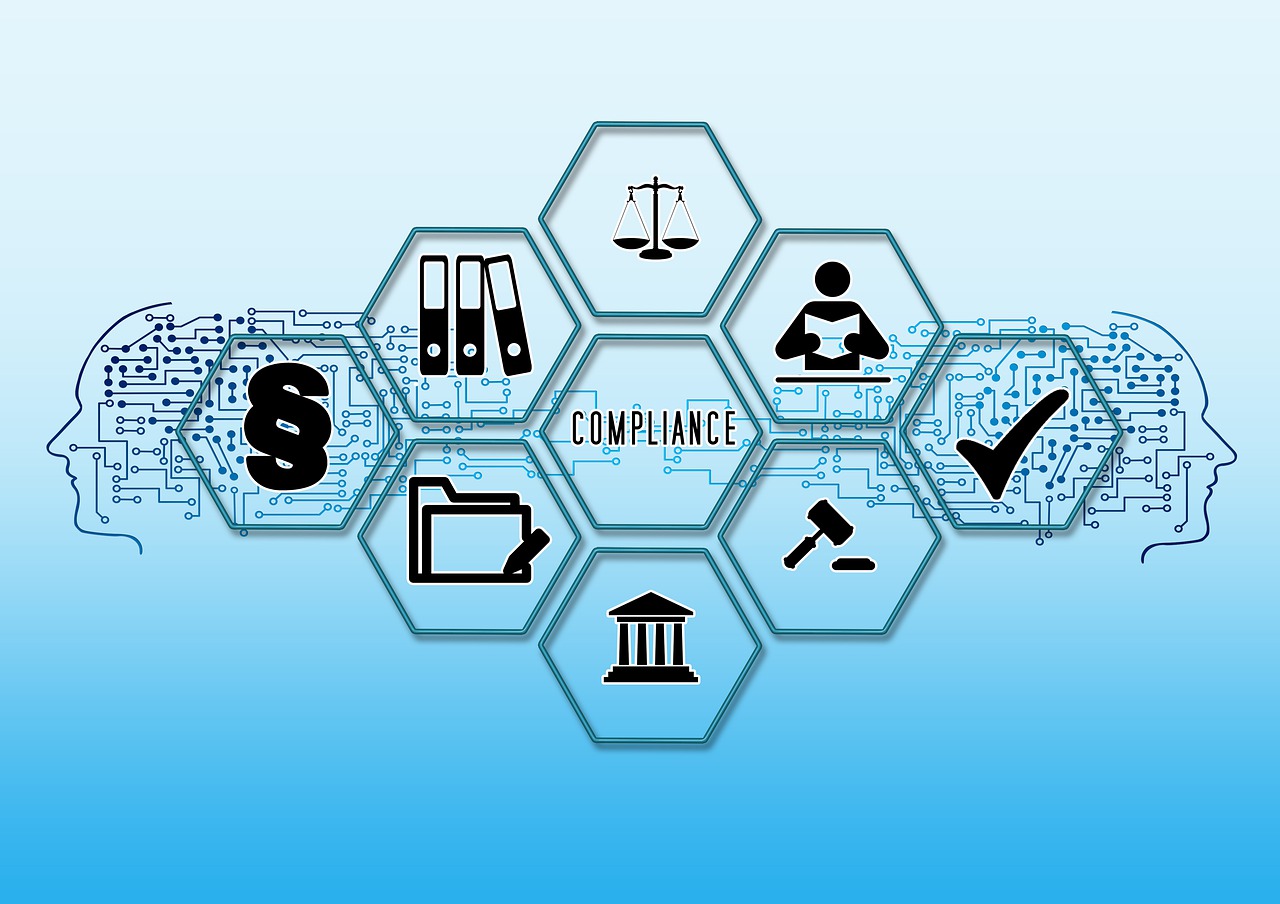In today’s increasingly digital world, social media has become an integral part of our daily lives. From personal updates to professional networking, it has revolutionized the way we communicate and connect with others. However, for financial institutions, the rise of social media has brought about a new set of challenges. Ensuring compliance with regulations while harnessing the power of social media can be a complex task. In this article, we will explore the importance of social media claims compliance for financial institutions. We will discuss the implications of non-compliance, the key regulations to be aware of, and provide practical tips for maintaining compliance in the ever-evolving landscape of social media.

Understanding Social Media Claims Compliance
In today’s digital age, social media has become a powerful tool for businesses to connect with their customers and promote their products or services. However, for financial institutions, the use of social media comes with its own unique set of challenges and regulatory requirements. Understanding social media claims compliance is crucial for financial institutions to ensure they are meeting their legal and ethical obligations.
Importance of Social Media Compliance
Social media compliance is of utmost importance for financial institutions due to the sensitive nature of the information they handle and the potential risks associated with non-compliance. By adhering to social media compliance regulations, financial institutions can protect the privacy and security of their customers’ data, maintain the accuracy and transparency of the information they share, and effectively manage their online reputation. Failing to comply with social media regulations can result in severe consequences, including legal penalties, reputational damage, and loss of customer trust.
Regulatory Environment for Financial Institutions
Financial institutions operate within a highly regulated environment to ensure the stability and integrity of the financial system. Several key regulations govern social media usage by these institutions, and they are enforced by regulatory agencies responsible for overseeing compliance.
Key Regulations
The key regulations that financial institutions must consider when using social media include but are not limited to:
-
Federal Trade Commission Act (FTCA): Prohibits unfair or deceptive acts or practices in commerce, including advertising and marketing practices on social media.
-
Securities and Exchange Commission (SEC) Regulation Fair Disclosure (Reg FD): Requires public companies to disclose material nonpublic information to the public in a fair and equal manner, including on social media platforms.
-
Financial Industry Regulatory Authority (FINRA) Rules: Sets guidelines for securities firms’ use of social media, including record-keeping, supervision, and advertising requirements.
Regulatory Agencies
Financial institutions are accountable to various regulatory agencies depending on their jurisdiction and the nature of their operations. Some of the key regulatory agencies overseeing social media compliance for financial institutions include:
-
Consumer Financial Protection Bureau (CFPB): Focuses on protecting consumers in financial transactions and enforcing regulations related to fair lending and consumer protection.
-
Office of the Comptroller of the Currency (OCC): Oversees national banks’ compliance with federal laws and regulations, including those related to social media usage.
-
Federal Deposit Insurance Corporation (FDIC): Monitors the safety and soundness of banks and their compliance with consumer protection laws and regulations.
-
SEC: Regulates and enforces securities laws to protect investors and maintain fair and efficient markets.
Challenges in Social Media Compliance
Financial institutions face several challenges when it comes to social media compliance. Overcoming these challenges is crucial to ensure the integrity and effectiveness of their social media presence.
Maintaining Data Privacy
One of the foremost challenges in social media compliance is maintaining data privacy. Financial institutions deal with sensitive customer information that must be safeguarded from unauthorized access or misuse. Implementing robust data protection measures, such as encryption and secure file transfers, is essential to protect customer data shared on social media platforms.
Ensuring Accuracy of Information
Financial institutions must ensure that the information they share on social media platforms is accurate and reliable. Misleading or false information can harm customers and erode trust in the institution. Implementing comprehensive verification and fact-checking processes can help mitigate the risk of disseminating inaccurate information.
Monitoring and Responding to Customer Feedback
Social media platforms provide customers with a powerful means to voice their opinions and provide feedback, both positive and negative. Financial institutions must establish processes for monitoring and promptly responding to customer feedback on social media platforms to address concerns, resolve issues, and maintain a positive reputation.
Managing Online Reputation
Financial institutions operate in a highly competitive market where their online reputation plays a significant role in attracting and retaining customers. It is essential to establish proactive strategies to manage and enhance their online reputation, including monitoring brand mentions, addressing negative publicity, and engaging with customers in a transparent and professional manner.
Handling Financial Promotions
Financial institutions must navigate complex regulations when using social media for promotional purposes. It is crucial to ensure compliance with regulations governing financial promotions, including providing clear and accurate disclosures, adhering to advertising guidelines, and avoiding misleading techniques.
Developing a Social Media Compliance Program
To effectively manage social media compliance, financial institutions should develop a comprehensive compliance program tailored to their specific needs and regulatory requirements. This program should encompass the following key components:
Establishing a Regulatory Framework
Financial institutions should establish a regulatory framework that outlines the relevant laws, regulations, and industry standards applicable to their social media activities. This framework will serve as a reference guide to ensure compliance and provide a basis for developing policies and procedures.
Designating Compliance Personnel
Appointing dedicated compliance personnel is crucial for overseeing and implementing social media compliance efforts. These individuals should have a deep understanding of the regulatory landscape and possess the necessary expertise to effectively manage social media compliance risks.
Implementing Policies and Procedures
Financial institutions should develop and implement clear and comprehensive policies and procedures governing social media usage. These policies should address areas such as content approval processes, disclosure requirements, record-keeping, and employee training.
Training and Education
Regular and ongoing training and education are essential for creating a culture of compliance within the organization. Financial institutions should conduct training sessions to educate employees about social media compliance obligations, the associated risks, and the importance of adhering to policies and procedures.
Monitoring and Auditing
Financial institutions should establish robust monitoring and auditing mechanisms to detect and address any instances of non-compliance. Regular audits should be conducted to assess the effectiveness of the compliance program, identify areas for improvement, and ensure adherence to regulatory requirements.
Best Practices for Social Media Compliance
Adhering to best practices in social media compliance can help financial institutions mitigate risks and ensure compliance with regulatory requirements. Some key best practices include:
Content Approval Process
Implement a thorough content approval process to ensure all social media posts comply with applicable regulations, accurately represent the institution, and align with its branding and messaging.
Clear Disclosures and Disclaimers
Include clear disclosures and disclaimers in social media posts to inform customers about the nature and limitations of the products or services being promoted and to avoid any misleading or deceptive practices.
Maintaining Records
Financial institutions should maintain accurate and complete records of all social media communications, including posts, interactions, and customer feedback. These records serve as a crucial resource for regulatory compliance purposes and can aid in resolving any disputes or complaints.
Regular Risk Assessments
Conduct regular risk assessments to identify and address potential risks and vulnerabilities associated with social media usage. These assessments should consider changes in regulations, emerging risks, and evolving industry best practices.
Effective Social Media Monitoring Tools
Utilize social media monitoring tools to actively monitor social media platforms for mentions of the institution, customer feedback, and any potential compliance violations. These tools can help financial institutions identify and address issues promptly.
Proactive Crisis Management
Develop a crisis management plan that outlines the institution’s response strategies and communication protocols in the event of a social media crisis. Being prepared to handle crises helps minimize reputational damage and maintain customer trust and loyalty.

Maintaining Data Privacy on Social Media
Protecting the privacy of customer data on social media platforms is crucial to avoid data breaches and uphold customer trust. Financial institutions should implement the following measures to ensure data privacy:
Data Protection Laws
Familiarize yourself with applicable data protection laws and regulations to ensure compliance when handling customer data on social media platforms. These laws may include the General Data Protection Regulation (GDPR) in the European Union or similar regional regulations.
Secure Account Management
Employ strong security measures when managing social media accounts, including using complex passwords, enabling two-factor authentication, and limiting access to authorized personnel only.
Encryption and Secure File Transfers
Utilize encryption technologies to protect sensitive data shared on social media platforms. Implement secure file transfer protocols to ensure data integrity during file exchanges.
User Authentication and Authorization
Implement strict user authentication and authorization processes to determine who has access to customer data on social media platforms. Regularly review and update access privileges to minimize the risk of unauthorized data access.
Ensuring Accuracy of Information on Social Media
Financial institutions must ensure that the information they share on social media platforms is accurate, reliable, and compliant with regulations. Here are some measures to ensure the accuracy of information:
Verification and Fact-Checking
Implement processes to verify and fact-check all information before sharing it on social media platforms. This includes cross-referencing information from reliable sources and verifying the authenticity of data.
Monitoring Employee Posts
Regularly monitor and review employee posts on social media platforms to ensure they adhere to the institution’s policies and procedures. Provide clear guidelines and training to employees regarding social media usage and the importance of accuracy.
Avoiding Misleading Techniques
Avoid using misleading or deceptive techniques to promote products or services on social media platforms. Ensure that all claims and representations are supported by evidence and comply with regulatory requirements.
Correcting Errors Promptly
In the event of any inaccuracies or errors in shared information, financial institutions should promptly correct and update the posts to ensure accuracy. Transparently communicate any corrections or updates to customers and stakeholders to maintain credibility.

Managing Online Reputation for Financial Institutions
Online reputation plays a significant role in financial institutions’ success, as it directly impacts customer perception and trust. Here are some strategies for effectively managing online reputation:
Monitoring Brand Mentions
Regularly monitor social media platforms and other online channels for mentions of the financial institution’s brand. Advanced monitoring tools can help identify positive and negative mentions, enabling timely response and reputation management.
Responding to Customer Feedback
Promptly respond to customer feedback, both positive and negative, on social media platforms. Addressing customer concerns and resolving issues in a professional and transparent manner demonstrates commitment to customer satisfaction.
Addressing Negative Publicity
In the event of negative publicity or viral content that may harm the institution’s reputation, swiftly address the issue. Publicly acknowledge the concern, provide accurate information, and take appropriate actions to rectify the situation.
Engaging with Customers
Engagement with customers on social media platforms is a valuable opportunity to build trust and credibility. Respond to customer inquiries, share useful content, and actively participate in discussions to showcase expertise and foster positive relationships.
Building Trust and Credibility
Consistently deliver on promises, provide high-quality products and services, and demonstrate ethical conduct to build trust and credibility with customers. This foundation of trust fosters a positive online reputation and customer loyalty.
FAQs
Can financial institutions use social media for promotional purposes?
Yes, financial institutions can use social media for promotional purposes. However, they must comply with applicable regulations, including providing clear disclosures and avoiding misleading techniques.
What are the consequences of non-compliance with social media regulations?
Non-compliance with social media regulations can result in legal penalties, reputational damage, loss of customer trust, and regulatory scrutiny.
How often should financial institutions conduct risk assessments for social media compliance?
Financial institutions should conduct regular risk assessments for social media compliance, ideally on an annual basis or whenever significant changes occur in social media regulations or industry practices.
Should financial institutions archive social media interactions?
Yes, financial institutions should archive social media interactions to ensure compliance with record-keeping requirements and to have a comprehensive record of their social media activities.
Can financial institutions delete customer complaints or negative comments on social media?
Financial institutions should approach customer complaints and negative comments on social media platforms as an opportunity for engagement and resolution. Deleting such comments without addressing the underlying issues can harm the institution’s reputation and customer trust.































